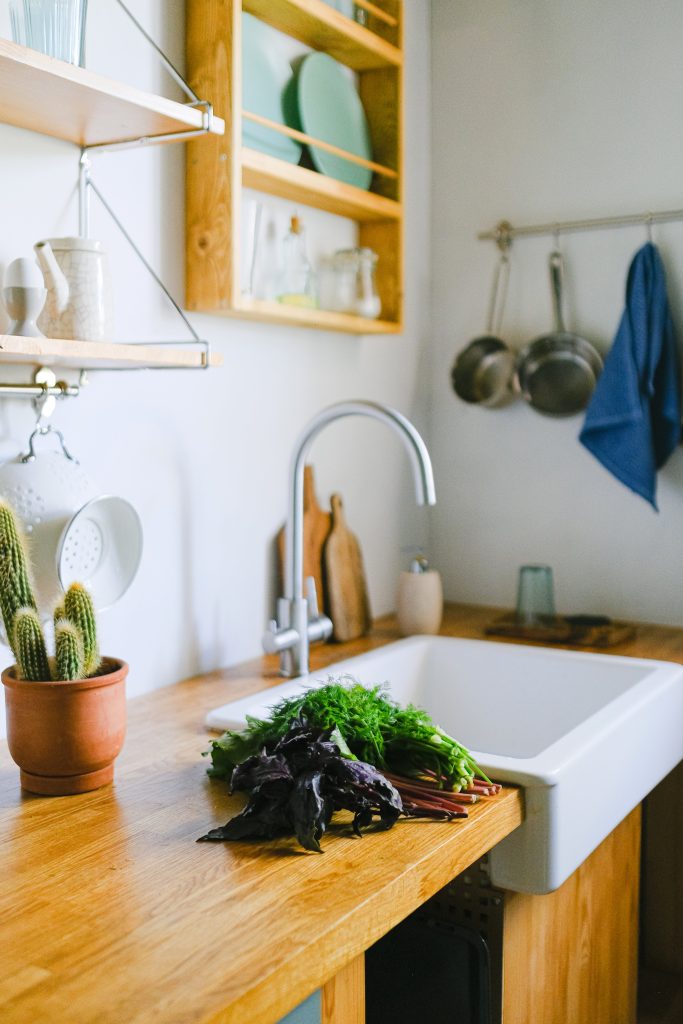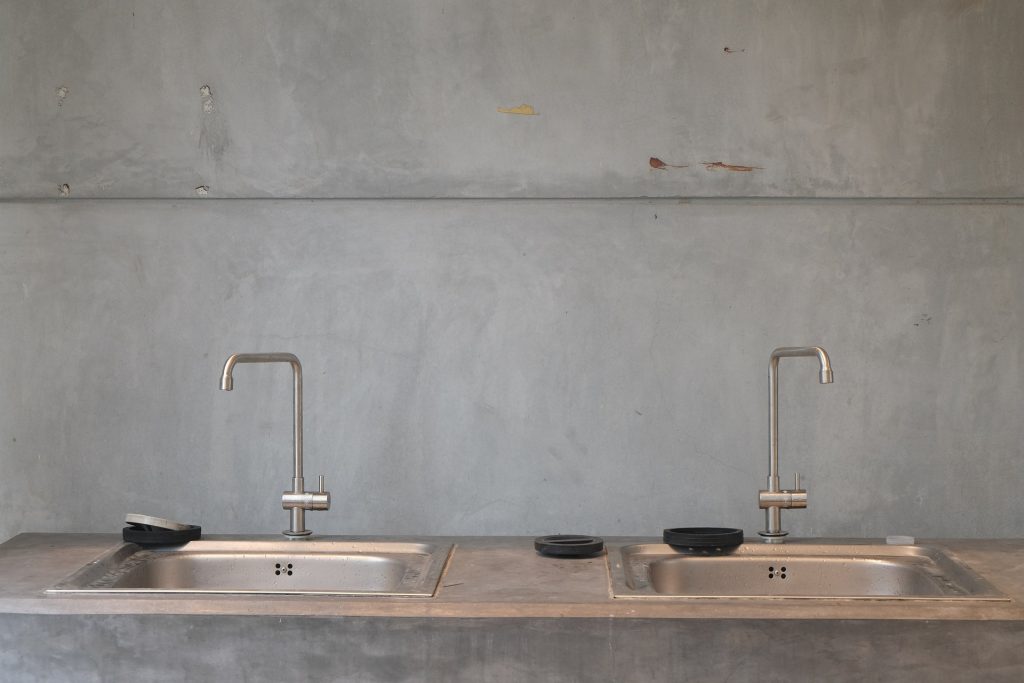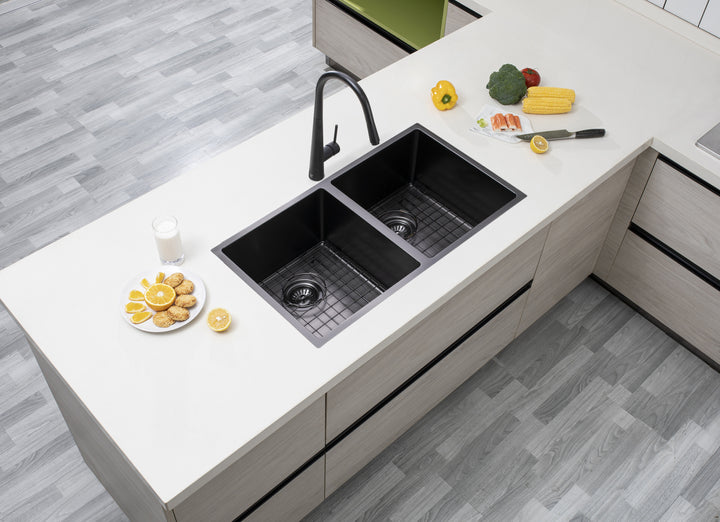
How to Clean Your Kitchen Sink like a pro
Introduction
A clean kitchen sink is not just about hygiene; it’s a cornerstone of a well-maintained home. At Topware, we understand that kitchen sinks are one of the most frequently used items in your house and can be a hotspot for bacteria and grime. This comprehensive guide will walk you through the steps and tips for effectively cleaning your kitchen sink, ensuring it remains sparkling and hygienic.
Understanding Your Sink Material
Different sink materials require different cleaning methods:
Stainless Steel
- Non-abrasive Cleaners: Use gentle, non-abrasive cleaners to avoid scratching.
- Regular Maintenance: Wipe down after each use to prevent water spots and mineral deposits.
Porcelain or Ceramic
- Mild Detergents: Stick to mild detergents and soft sponges.
- Stain Removal: Use baking soda and vinegar for tough stains.
Composite Sinks
- Specialized Cleaners: Use cleaners designated for composite materials.
- Avoid Harsh Chemicals: Harsh chemicals can damage the surface.
Routine Post-Use Cleaning
Ensure your kitchen sink stays clean with these routine post-use cleaning tips:
- Immediate Rinse: After each use, promptly rinse the sink to prevent food particles from sticking and staining.
- Soft Cloth Wiping: Use a soft, absorbent cloth to wipe the sink, reducing the risk of water spots.
Comprehensive End-of-Day Cleaning
For a more thorough cleaning at the end of the day, follow these steps:
- Mild Detergent Usage: opt for a mild detergent for effective yet gentle cleaning.
- Gentle Scrubbing: Use a soft sponge or cloth to gently scrub the sink surface, paying attention to grime-prone areas.
- Final Rinse: Rinse the sink thoroughly after scrubbing to remove any detergent residue.
- Complete Drying: Wipe the sink dry with a clean, dry cloth to prevent water spots and mineral deposits.
Additional Daily Cleaning Tips
Enhance your daily cleaning routine with these additional tips:
- Non-Abrasive Materials: Use non-abrasive materials to prevent scratching, especially on stainless steel and composite sinks.
- Cleaning the Faucet: Wipe the faucet and handle daily to prevent buildup and maintain a consistent shine.
- Deodorizing: Occasionally, run a slice of lemon or a small amount of baking soda down the drain to keep it smelling fresh.
Importance of a Daily Cleaning Routine
Discover the significance of maintaining a daily cleaning routine for your kitchen sink:
- Prevents Bacteria Growth: Regular cleaning inhibits the growth of bacteria and mold in damp environments.
- Maintains Sink Integrity: Daily maintenance prevents abrasive substances and chemicals from damaging the sink’s surface over time.
- Enhances Kitchen Appearance: A clean and shiny sink improves the overall aesthetics of your kitchen, making it more inviting.
Weekly Deep Cleaning for Optimal Sink Maintenance
Conduct a comprehensive cleaning routine weekly to maintain the longevity and appearance of your kitchen sink:
Detailed Step-by-Step Cleaning Guide
Follow these steps for a thorough cleaning process:
- Preparation: Clear the sink of dishes and utensils to have full access to the entire sink surface.
- Scrubbing the Surface: Select the right cleaner for your sink material and use a soft brush or sponge for gentle scrubbing.
- Drain Cleaning: Use a combination of baking soda and vinegar for natural cleaning of the drain.
- Rinsing: Thoroughly rinse the sink after scrubbing to remove all traces of cleaning agents.
- Drying and Polishing: Dry the sink with a microfiber cloth and use a specialized polish or olive oil for added shine.
Additional Tips for Weekly Deep Cleaning
Enhance your weekly deep cleaning routine with these additional tips:
- Faucet and Handles: Clean the faucet and handles with a gentle cleaner and a soft cloth to polish these areas.
- Protective Measures: Consider applying a protective coating specific to your sink material after cleaning to repel water and prevent stains.
- Regular Inspection: During weekly deep cleaning, inspect your sink for signs of wear or damage and address any issues promptly.
Importance of Regular Deep Cleaning
Learn why regular deep cleaning is crucial for maintaining your kitchen sink:
-
- Prevents Bacteria Growth: Regular deep cleaning reaches hidden areas, preventing the growth of bacteria and mold.
- Maintains Optimal Functionality: Deep cleaning ensures the drain remains clear and the sink functions optimally.
- Preserves Aesthetics: Regular deep cleaning preserves the aesthetics of your sink, preventing stains and discoloration
-
- Hygiene: Regular deep cleaning eliminates bacteria and germs that can accumulate in kitchen sinks due to constant exposure to food particles.
- Longevity: Proper maintenance can significantly extend the life of your sink by preventing rust, corrosion, and other damage.
- Aesthetic Appeal: A well-maintained sink enhances the overall look of your kitchen, contributing to a cleaner and more inviting space.
Dealing with Stains and Scratches
Tackle stains and scratches to keep your sink looking new:
Stain Removal
-
-
- Natural Solutions: Use baking soda or vinegar for natural stain removal.
- Commercial Cleaners: For tougher stains, consider a commercial cleaner designed for your sink type.
-
Scratch Care
-
-
- Stainless Steel: Use a stainless steel polisher to minimize the appearance of scratches.
- Porcelain and Composite: Avoid abrasive materials that can worsen scratches.
-
Disinfecting Your Sink
Disinfection is crucial, especially during flu season or after handling raw food:
Safe Disinfectants
-
-
- Bleach Solution: Use a diluted bleach solution for deep disinfection (ensure proper ventilation).
- Alcohol-Based Solutions: These are effective, especially for quick disinfection.
-
Eco-Friendly Cleaning Options
For those who prefer green cleaning solutions:
Natural Cleaners
-
-
- Baking Soda and Vinegar: These pantry staples are effective for cleaning and deodorizing.
- Lemon and Salt: Great for scrubbing and leaving a fresh scent.
-
Avoiding Harsh Chemicals
-
-
- Chemical-Free Products: Choose cleaners that are free from harsh chemicals and fragrances.
-
Maintaining Your Sink’s Shine
Keep your sink looking as good as new with regular maintenance:
Polishing Techniques
-
-
- For Stainless Steel: Use a specialized stainless-steel cleaner for a lasting shine.
- For Porcelain and Composite: Wipe with a soft cloth dampened with water and a small amount of vinegar.
-
Professional Cleaning Products
Sometimes, professional-grade products can provide the best results:
When to Use
-
-
- Tough Stains: For persistent stains that home remedies can’t tackle.
- Regular Maintenance: Professional products designed for regular use can maintain the sink’s appearance and longevity.
-
Choosing the Right Product
-
-
- Read Labels: Ensure the cleaner is suitable for your sink material.
- Non-Abrasive: Choose non-abrasive cleaners to avoid damaging the sink’s surface
-
Conclusion
Cleaning your kitchen sink is a simple yet vital part of home maintenance. Whether you prefer natural remedies or professional products, keeping your sink clean is essential for both hygiene and aesthetics. At Topware, we offer a range of kitchen sinks and cleaning products to suit every home and lifestyle. Visit our website to find the perfect kitchen sink and cleaning solutions for your home – Topware, where quality meets functionality!


